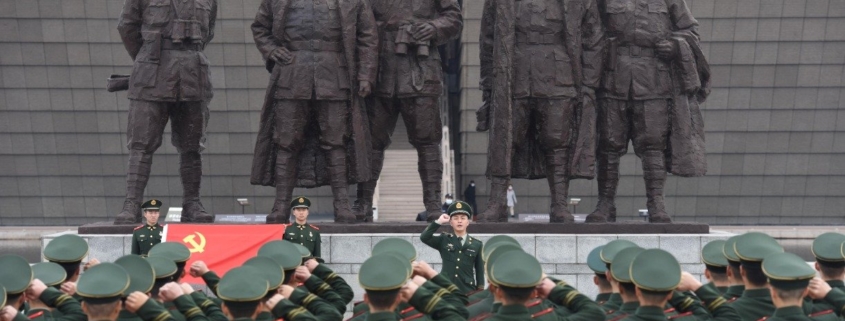Technology Adoption: Are we too late to the party?
Technology Adoption: Are we too late to the party?
Jan Havránek and Daniel P. Bagge

Future technologies: Source: NATO, “Science & Technology Trends: 2020-2040.”
Introduction
NATO and the West are experiencing a reversed kind of revolution in military affairs (RMA) with new technologies bearing far-reaching implications beyond the conduct of war. Past revolutions in military spilled from the battlefield to the civilian sector. They had an effect either by directly impacting the result of a given conflict or through adoption of military technical advantages in non-military aspects of life. Today, we see an opposite trend brought by the private and non-military, non-governmental actors. In their everyday lives, general publics and governments alike face military-grade technologies developed and applied by the commercial sector. And it is the private sector that enjoys exclusivity over these technologies while the military lags behind.
How information is gathered, processed, analysed, communicated, distributed, and utilized has always underlined military planning and assumptions for success in conflict. For example, the reconnaissance strike complex introduced by the Soviets was based on real-time intelligence gathering and underpinned by automated systems and fast data processing. Similarly, NATO’s deep attack concept assumed that commanders “would be given the automated assessment means necessary to rapidly analyse the enemy’s force array.”[1] Such concepts, however innovative and tech-based, assumed a relatively limited amount of data and relied heavily on the human factor. Today, in the era of cloud computing and artificial intelligence, there is a clear shift towards sensor-centric, automated processing. Reconnaissance and analysis are becoming as important as firepower and kinetic effects. Humans are being pushed out from the decision-making due to the quantity of information gathered/coming from the battlefield. The hyper-speed warfare (or the “hyper war,” a term linking the intensity of conflict with cybernetics) risks making the human factor almost obsolete. To a certain extent, human presence in the loop will consequently become more a question of…
